Your economic security does not lie in your job; it lies in your own power to produce—to think, to learn, to create, to adapt – Stephen Covey
Money is a virtual fuel that the modern world uses to facilitate most processes in The Game of Life.
It’s supported by nothing other than our mutual agreement and trust that it holds value. We can say that trust in money is the most universal type of trust in almost all of human society. Different people believe (or don’t) in different gods and ideologies, but somehow we all believe in money.  Money is just as real as the trust that we put in it. A 20$ bill is worth 20$ only as long as we all believe it holds this value.
Money is just as real as the trust that we put in it. A 20$ bill is worth 20$ only as long as we all believe it holds this value.
Living in a money-driven world is the current human condition. Is this the best way to live, or simply a step in our collective evolution? This is a tough question. But maybe it’s also not that important. If we learn to understand and care for each other and prevent scarcity among the less privileged, we’ll be happy with or without money as a tool.
But whether you like it or not, you should definitely understand money. And understanding requires getting a bit closer and tossing away barriers and fears related to money and its absence (scarcity). To truly understand money, you must confront your fears and biases about wealth and poverty. Money is simply a tool, and like any tool, it’s most effective when used rationally rather than emotionally. Don’t be afraid to either have or owe money.
As we know, money can’t directly buy happiness, love, or any really important thing in life. However, money and freedom are practically connected. Freedom is what gives space for everything beautiful in life to exist. So, under the radar, money is almost everywhere in your life. As we mentioned before, if you are a car, money is the car service. You could theoretically not use it, but it would limit many of your options.
Money has a supporting but near-essential role in life. Like the car service comparison, it’s also great to show how much money you need. Not a lot in the short term, but ideally more than enough in the long term. Not having money for essentials, especially when caring for a family, is a constant stress that no human should have to go through. It’s a bad situation that leads to bad life choices, and we have to understand and restructure our capitalist society, so no one is left behind. Universal Basic Income is the buzzword, but we still have a much less controversial thing to admit yet: Greed is not good!

- Big corporations should stop receiving endless subsidies and tax breaks.
- The financial industry creates mostly nothing, and its meaningless branches can be taxed, so it shrinks from its overblown size.
- Something should be done about tax havens.
I consider money to be a trap word, one of those general words that we say all the time but don’t really understand.
The other trap words are such because they are generic and complex. Work, or religion, for example, have so many aspects to them that our brain has this aura of inconceivable complexity around them and doesn’t really want to go deep into the concept, leading to shallow understanding and possibly bad choices.
Money, you can argue, is simple. Everyone knows what it is and has experience with it from a young age. Then surely we should be able to understand it? Well, no.
The problem is that money is a concept of quantity, and our brains can’t really deal with this intuitively. There was nothing to quantify when we evolved in a cave with little to no possessions 50,000 years ago.
In life, we need money over a long period of time. As already said, humans don’t have great intuition about time either. So, the feeling of how money accumulates over time is absent.
Mathematics is here to help, but as you probably don’t want complex equations in your daily choices, we have to find a way to bridge mathematics back to the intuitive level. A lot of this has to do with understanding exponential functions intuitively, which is not that hard once you’ve seen a few.
What is the exponential function? We can explain it in very basic terms without even using any mathematics.
Everywhere, where there is a quantity that grows, even if it is only a few percent a year. Inflation, for example, causes the initial value of this quantity to double in only a few years (we call this doubling time). Doubling means that this quantity achieves a value that is bigger than the sum of all its values in the past. For example, if our energy consumption grows at 7% a year, it means that it doubles in only 70 / 7 = 10 years (formula that you can use to calculate the doubling time. Use 70 / 5 if the growth is 5%, etc)
So, in ten years, we will consume more energy than we’ve ever consumed combined in the whole of human history! Again, very simple maths here. For example, let’s now have a value 8 = 2 * 2 * 2, which grows 7% per year and will double in only 10 years. And so we will have 8 * 2 = 16 in ten years, and if the growth rate does not change, 16 * 2 = 32 in 20 years, and so on. And what was the value 10 years ago? 8 : 2 = 4.
And 4: 2 = 2 – 20 years ago, 2: 2 = 1 – 30 years ago, and so on. Let’s now consider that 1 + 2 + 4 + 8 = 15 < 16. So, the value in 10 years is bigger than all the values till now summed up. This is true if you also add the previous values – 1/2, 1/4, 1/8, and so on. You can watch the most important video you’ve ever seen for simpler explanations and examples of the exponential function!
Maths and Game of Life knowledge alone won’t do it. You need to know what’s possible in your relationship with money and understand your Game of Self barriers. Almost all people have them, and they are a huge part of the problem.
Let’s try to break down the complex concept of money to its underlying parts so we can understand it in depth. There should be a general question in everyone’s mind:
Where does money come from?
Now, I’m not talking about monetary policy and central banks, fractional reserve system loans, and other terminology you may or may not understand. This is interesting for economists but has little to do with the average person’s day-to-day life.
From your point of view as a person, the economy has two main things going on:
- Humans and systems create value (the centerpiece of the economy).
- Value may be converted into another value, converted into money, or just lost.
Converting value into money just means storing it as a stable value-holding object that we all mutually trust.
 For example, you wander about in a forest and you find some raspberries. You pick some up, and now you have value. You can do a number of things with the value:
For example, you wander about in a forest and you find some raspberries. You pick some up, and now you have value. You can do a number of things with the value:
- You can eat them, transforming the value into another value (being fed with fresh and healthy food)
- You can sell them to someone, transforming the value into money
- You can forget the bag with the raspberries somewhere and lose the value (undesirable)
So, money from your standpoint is only sustainably created for you in these two steps:
- You create value
- You exchange the value for money in the economy
Now, you’re not alone in the world, where do other people and companies come into the picture? Potentially everywhere:
- You may or may not depend on others for creating the value
- You may or may not depend on others for exchanging it for money at a good rate
There is always some dependence, and configurations can be different, but the golden question is:
Do you want to be structurally dependent (for your own security) or choose your own way (having freedom)?
The rest of the post, we’ll talk about earning money by working and the different ways you can do it. Work is a mixed concept, a trap word, and is explored in the work post. It has all the bits and pieces, like educating yourself and feeling good at what you do. But here we are in the Money post, and you need Freedom in order to maximize your chances for Money and the other important stuff work should bring into your life. Until the end of the post, we’ll regard every other component as a consequence of your Money and Freedom.
I’m often asked if everyone prioritizes money, will enough people want to be doctors, teachers, or caretakers? Some people will do it for the love of others, and those people have my absolute respect. Both in terms of supplying enough doctors, teachers, caretakers, and in an attempt to bring some much-needed financial fairness to these largely underpaid jobs, we have the moral incentive to increase social mobility and the freedom of each person to have access to well-paid work. Reducing the low-wage exploitation in society can’t be a bad thing on any level. People want to give back, we just need to make sure they have time and resources to give instead of being in a constant struggle to survive.
Here are the two usual ways to go about this:
Be totally dependent and have a day job (participate in the labor market, not directly in the one for goods and services)
This choice has many structural similarities to… living under a dictator.
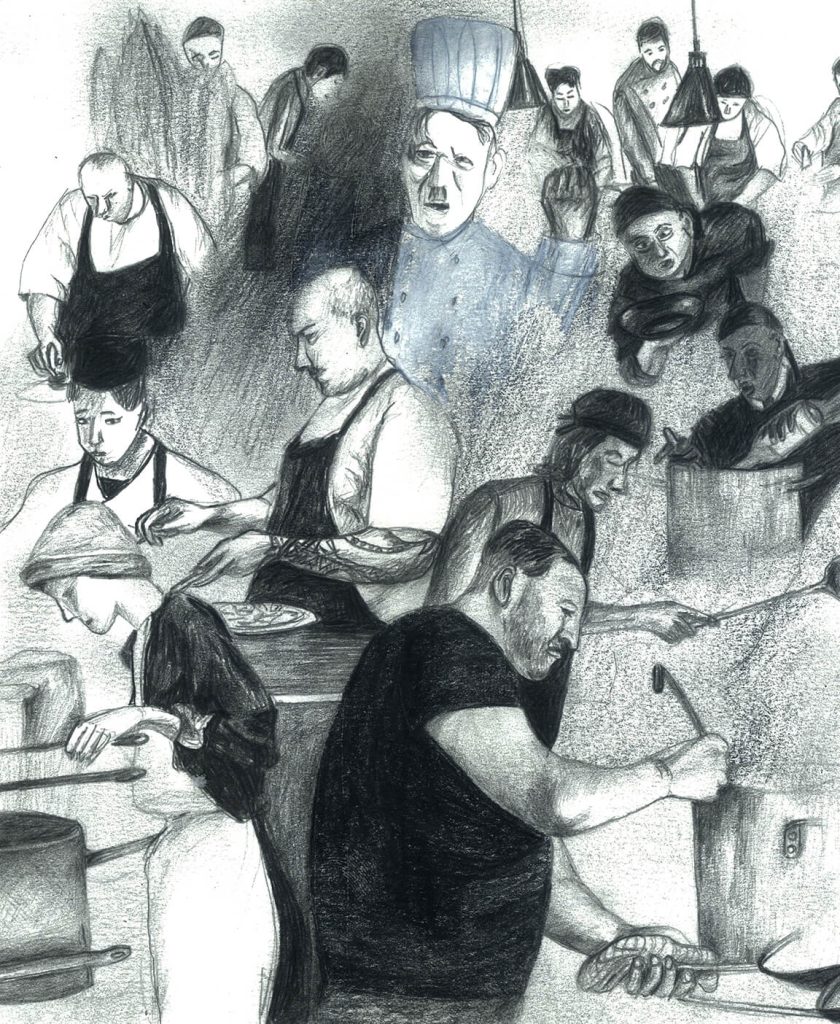 The day job is structured like a dictatorship. If your boss is cool, it may not feel like one. But if they are morally corrupt (and remember, power corrupts easily) or just want to maximize short-term profit as a priority, regardless of your needs as a human being, then there is no clear structure in a company to help you out. You can’t vote the boss out or even debate on even grounds at most workplaces. Your only real freedom is to leave the job. If you need the money in the short term, this may not be a great option either.
The day job is structured like a dictatorship. If your boss is cool, it may not feel like one. But if they are morally corrupt (and remember, power corrupts easily) or just want to maximize short-term profit as a priority, regardless of your needs as a human being, then there is no clear structure in a company to help you out. You can’t vote the boss out or even debate on even grounds at most workplaces. Your only real freedom is to leave the job. If you need the money in the short term, this may not be a great option either.
In the end, it may be great, it may be terrible, it’s all up to the dictator (boss and work environment). You can’t really change or influence the dictator (boss and work environment) that much. It’s stable (you get a salary), which is a major relief, as you can plan for the future. Changes are incremental. Often, the only way for career advancement is to become friends with the dictator (corporate politics). Sooner or later, you get what you can from the dictator (job), and it’s time to… switch the country. A new day job means a new country with another (better or worse) dictator. And so on…
Choose your level of dependency and work for yourself (participate directly in the market for goods and services)
This choice has many structural similarities to… living in a democracy.
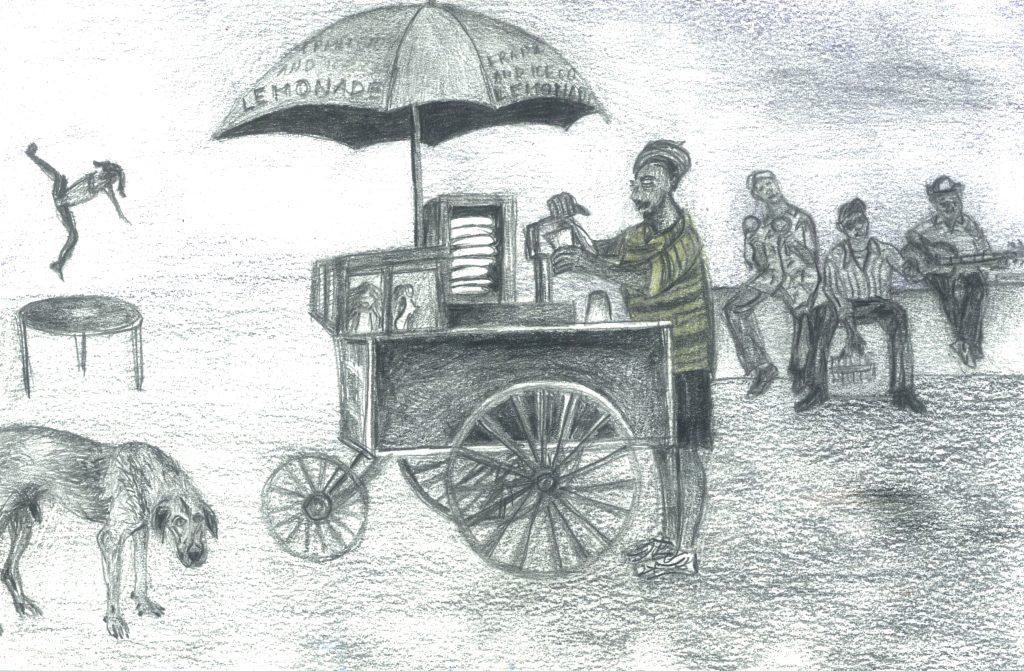
Everything is a mess. You have the freedom to try many things, and there is no one to tell you what to do as a country. Sometimes, you make good choices (elect good leaders), and sometimes, you elect Donald Trump or vote for Brexit, and then you instantly regret it. Changes can be big and shake up everything. You don’t know what the future will be like.
If you can’t handle it, you go back to dictatorship (if you elected Hitler, Putin, Donald Trump, or Erdogan, it’s an easy path) for better or worse. However, if you can handle the mess and don’t long for the simple comfort zone of authoritarianism (living the simple life of being told what to do), democracy can work.
You get to learn and improve. Your choices (the democratically elected leaders) have ups and downs, but are better over time. Because progress comes with change, not stability. It needs a mess. It needs freedom.
If you look at the world, you will notice that there are many dictatorships, some more subtle than others. And a bit more democracy.
Not all dictatorships are all bad, and not all democracies are good due to all kinds of reasons – outdated election structure, money in politics, not enough honest politicians to pick from…
There is one thing that history seems to show: it’s that on a big time scale, dictatorships get worse in the end times of the dictator (Russia and Turkey in recent years are prime examples), and democracies seem to get better overall slowly. This shows the advantage of messy concepts like the Separation of powers. Imagine having three brains, and this is actually better than having one.
I gave all these real-life examples and comparisons to show that if we manage to sacrifice simple order so we have freedom in society, you can do it in your own life too. It was simpler in the times of kings; you didn’t have to learn about politicians and vote. Simpler but not better.
In the same way, outsourcing the decisions for creating and exchanging value to a company in return for a wage is no doubt simpler than creating and exchanging value yourself. It’s simpler to have a king at work. But not better.
And while today may be better with the stability of the salary than the mess of entrepreneurship, think about the diverse experience you need. Where is it more? Where is it real, unconstrained by rules and company policies? Where are the freedom, the creativity, and the hunter moves?
I understand that some companies are great. I run a not-nearly-great-enough company myself, where we try to give people as much freedom as possible (though probably the legend Ricardo Semler goes far beyond what we do). In general, no support structure can teach you what the mess of real life can be. I only run a company because I was in this mess and learned a lot. No job could have given me the same diverse experience at the same time.
I made it sound like you have to make a life-defining choice today. This is not the case. If you have a job you like, you don’t have to quit it immediately or at all. It also largely depends on what kind of job it is:
Let’s ask what matters for the money you make in the 4 possible cases:
- Crappy day job eg. McDonalds counter – Nothing matters, you’re mostly expendable and paid as low as possible (dramatic take)
- Middle quality day job, eg, Administrative job – Experience and loyalty
- Good day, job, eg, Software Developer – Experience and loyalty
- Entrepreneurship – Experience
(Of course, there are many Game of Self factors that matter too, but for now, let’s focus on the things you can put on a CV/Resume. By loyalty, I mean the amount of time you are willing to stick around and improve at a given job. It’s hugely important for every decent employer).
So everywhere but at the crappy jobs, experience is very important. Doesn’t this mean your main goal as a young person in life is to get experience?
However, it’s wrong to measure experience in years. I would like to know how many different things you have experienced. If you did a niche task for 5 years, you’re hardly 5 times as good as someone who did it for 1 year – the difference is more like 10-20%. So repetition leads to waste.
This is where task diversity comes in. In a typical workplace, you do a few things, but as your own boss, you do way more. Suddenly, you have to do all of it well. At the job, you could be a 70% effective communicator and get away with it. But now you’re your own sales so immediately you know you have to get out of your comfort zone and improve your communication skills.
It’s not an urgent decision to make. You just need to know that working for yourself usually (not always) means getting more diverse experience and thus investing in a better future. Which can still be a day job! Just one where you’re better appreciated and paid.
Despite all this sound logic, most people who work at crappy or middle quality day jobs consistently refuse to make leaps to better jobs or leave the labor market altogether so they can have the freedom of working for themselves and invest in experience gathering. Why?
Here we’re entering straight into Game of Self territory. And boy, where do we start:
- People are held back by inertia and resist change

- People specifically resist change from something known to something unknown
- People resist culturally unpopular changes that cannot be well explained to their conservative peers, eg, parents
- People underestimate themselves and overestimate potential trouble
And all of this is fantastic… for you
See how I was talking in the third person for a while? This is because the fears of change are not just your fears. They are universal among people, biologically built into all of us. And here lies your biggest chance.
Our economy is built upon the free market system.
Many people have a basic understanding of the main drivers of a free market economy – supply and demand. What they miss is the mind-blowing dynamics of the current world. Every second, the sheer complexity of our world creates new demand for thousands of completely different things.
There are billions of completely economically sound business ideas (ones that have more demand than supply) for new products and services at any given moment. And there are even more silly ones (ones where there is no demand or are already in high supply).
Choosing an idea seems hard, but don’t think about it as choosing. Think about it as testing, where you test ideas with minimal resources while getting education (experience) as added value, learning by doing from life itself.
This is why I strongly believe it’s pointless to learn something like economics at university. Why pay money to learn in a not-good-enough-similation when you actually live the real thing, money and value are all around you? Get some diversity of experiences in your life, and the knowledge and experience will pour in.
If creation is not your thing, you don’t have to create! Value can be created simply by extracting it from the inefficiencies of the system. The most common form is reselling (trade).
There are another billions of already existing things that you can resell… and in different ways!
- Buy now, sell in the future when demand rises
- Buy at one place, sell at another where they need it more
- Buy in large chunks, sell in small chunks
+ combinations of the above…
 And if you just once hit high demand and small supply from billions of (mostly yet untested by anyone) configurations, boom, you succeed! And even if the success is small, short-lived, and not directly replicable, it doesn’t matter. You’ve seen it happen, and now you believe it’s possible and have the skills and confidence needed to find another winning configuration.
And if you just once hit high demand and small supply from billions of (mostly yet untested by anyone) configurations, boom, you succeed! And even if the success is small, short-lived, and not directly replicable, it doesn’t matter. You’ve seen it happen, and now you believe it’s possible and have the skills and confidence needed to find another winning configuration.
Doesn’t sound that hard now, does it?
That fact that everyone else does not take their chances just increases yours.
You can always trust demand and supply because the demand for the economic results of risky/hunter moves is high, and so the supply is low. This is where not only the experience is, but also, literally, the money.
I hope by now you understand the benefits and just have to… make the change X.
Many Game of Life problems look like this:
X looks easy, let’s do it… Ooops, no, it’s not, and I just learned how bad my understanding is. Hit a wall but got valuable experience.
Many Game of Self problems look like this:
X is objectively easy, but it doesn’t feel this way; it feels hard. I see a wall, and I don’t try X to find one; there isn’t one. I’m just stuck…
So, when wondering whether to try X, if you do and it doesn’t work, you still get the experience. But if you don’t try and it would have worked, it’s just a complete total loss, the worst case scenario. So, trying (not-objectively-dangerous) things is just worth it.
I’ll say it just once, although it could have been every 5 lines. You have nothing the F*CK to lose by trying!
To help you loosen up, let’s understand some more underlying reasons so you don’t feel any useless, paralyzing guilt.
The whole “making money is hard” bullshit is a powerful cultural theme. It was very true for our grandparents, mostly true for our parents, and is very much integrated into our dinosaur of an education system. By the way, if tons of people suddenly use magic to become perfectly rational despite their fears and start everything economically worth starting, opportunities will rapidly close, and “making money is hard” will suddenly become true again. However, magic isn’t real. Fears are real, though; people are stuck in sheep mode, and so the door is still wide open for you and will be for a long time to come.
To summarize, where the Game of Self problem with finance, most people have, really comes from:
- Changes into unknown territory scare the devil out of us. No changes = Less experience and lower earnings. Not your fault, biology.
- We were mostly brought up with the notion that financial success is the result of time spent and hard work. Zero risk linear growth.
- Not understanding exponential growth, proper risk management, and most crucially, the concept of free money.
- You’ve never heard of free money? How about free value, still no? How about “win-win solutions”? They are all the same thing.
- If you don’t believe in free money, you won’t be able to spot and evaluate win-win solutions. Your innovation rate will suck.
Win-win solutions = free value = free money -> let’s call these free lunches, as I know “free money” scares you out. Baby steps!
People don’t believe the objective truth of how easy it is to make money. It’s a self-fulfilling prophecy:
- Everyone believes there are no free lunches
- Some amount of free lunches pop around in a dynamic economy, but people don’t look for them or pass them by
- Almost no one has had a free lunch ever, and even the ones who have stay quiet or are widely disbelieved by the rest
- Everyone still believes there are no free lunches…
I was stuck in the same cycle like everyone else. Until one day, a miracle happened.
To this day, I vividly remember how 14 years ago I found an obvious free lunch in my industry and how my life changed. I suddenly saw in detail how this cycle works and the amazing advantage I was going to have by simply believing in free lunches. An entirely Game of Self leap. I had undeniable proof that the rest of the world did not find all the free lunches. Whether they were too lazy or not confident enough was an intellectually interesting question, but it didn’t really matter. For myself, the future answer was going to be “neither”. And I would refocus my work even more to search for free lunches.
Once you believe that anything is possible, things get easier. This is also a perfect moment to ditch the artificial concept of… goals.
I regard all goals related to money (and most goals in general) as a stupid, unnatural concept. We didn’t evolve for specific goals. When living in scarcity 50,000 years ago, it was useless to say “let’s kill 10 mammoths this hunting season”. We got as many as we could because life was harsh; sometimes it would be 7, sometimes it would be 12, and we’d still fully utilize them.
Goals are a luxury of the modern world and detach us from our natural tenaciousness for more, the beauty of the unexpected, the power of flow, and the fact that potential is almost limitless.
Now, if we don’t have goals, what do we want, and how do we achieve it? It’s ok to want just one universal thing – progress.  No details, no pressure, no success, no failure. Just a life of growing younger.
No details, no pressure, no success, no failure. Just a life of growing younger.
And about that change you want but don’t initiate… Every time you have a strong emotion, consider using it to start the process you want to start anyway. Emotions are your chance for an instant win in The Game of Self.
Had a bad day? Start the change and turn a day you would want to forget into one you will remember forever.
Had a lovely day? The sheep vibes are weak, and the hunter moves with another spontaneous one.
The hardest part is the start of the change. Then it will continue by itself…
What to do once you have complete freedom, and have to create value, and turn it into money?
Well, I’m not a financial advisor, and I don’t give financial advice. Cut the bullshit, if I made you change your life direction I’ll have to give you at least some questionable financial hints. However, the responsibility is all yours, remember.
Your ideal relationship with money has three core principles. Let’s list them, and then we’ll expand one by one:
- Earn as many big chunks of easy/fun money as possible
- Aim to have enough money so you don’t have to care about expenses like rent and food
- Investing in yourself and your life/work is better than saving/investing anywhere else

Earn as many big chunks of easy/fun money as possible.
There are billions of possible money-making activities for you in the world.
Some bring good money, some do not (this is an objective, Game of Life metric, measured in money).
Some are easy to test, some are not (this is an objective, Game of Life metric, measured in the time required to test the profitability).
Some are fun, some are not (this is a subjective Game of Self metric, and you change it by tweaking the activity and your perception of it).
Ideally, you want something profitable and fun. You don’t care if it’s easy or hard as long as it’s fun; hard is fine, hard is challenging. Right? Right. This is common human logic, and it’s perfect for The Game of Self. In fact, it’s a major source of motivation, and humans are drawn to challenges and hard stuff a lot.
But The Game of Life’s cold logic disagrees profoundly with “hard is good”.
- If an activity is hard, it will take time to test and master, which has the single but huge drawback that you won’t have the chance to try many activities over time.
- If an activity is hard, it draws people who are searching for a challenge. The economic results of such activities are in high supply, and you already know what this means – the money is gone, and only scarcity is left for most.
So here is our first principle when choosing how to make money:
It better be easy to do what you do, so you can test many things in a short time and avoid overcrowded challenges. The risk is to lose motivation, so you should just manage motivation carefully.
How do we manage motivation when it’s too easy? There are 2 simple ways:
- You artificially make it harder. If you earn enough money on a 4-hour workday, try to make it. It will instantly become harder in a different way, more motivating and fun, while still being easy as an activity. This way, you reap all possible benefits.
- You tie the activity to core positive emotions. Help people in need with the money and knowledge you gain. Hire people you care about to work together with you.
Now it’s time for principle number two. You want to be profitable, but so does everyone else. Try to trade stocks and you’ll sense the huge competition instantly. How do you go about finding a profitable activity whose economic results are not in high supply? There is an obvious answer:
It better be hard for potential competition to understand in depth what you’re doing. This way, no one can see it’s profitable. An obscure niche, if possible.
At first, it was easy to try and hard to understand, but it seemed contradictory. Until you remember that you don’t need to deeply understand something in order to try it out. In fact, when you focus on easy-to-try activities, you can try a lot of them; this is the actual way you can find a profitable niche. And it’s profitable because it’s hard to understand (for the others), and you’ll already be in it, trying. Now you have all the time in the world to understand it and improve and scale. While earning!
A good hint is to do something that uses an underlying foundation that not all people understand. Like the Internet and websites. And then dive into niches of niches even further to find the golden one. But choose your foundation wisely. If it falls through, you fall too. The Crypto ecosystem is still young and has a massive problem with unstable foundations.
And finally! You want to have fun. This is, I would say, the easiest part. It’s mostly Game of Self and thus subject to improvement all the time. The key is not to plan it beforehand and not try to predict whether an activity will be fun or not. The truth is you can’t… until you’re actually doing it. Almost every daily task can be tweaked until it becomes fun.
And still, I’ve heard countless friends say the words “It’s not my thing…” for an activity they have never tried. How do you know then!?
Once you have found (by easy testing) a hard-to-understand but easy-to-do, profitable activity, money is solved. Now, test every possible variation so you can have the most fun.

There are so many ways to do anything. It’s more fun when you turn it into a challenge, when you do it with loved ones, when you use it also to help people, when you teach and share success. Have fun! Money gives freedom, enjoy it!
It’s perfectly possible that your easy-to-do, hard-to-understand, fun activity will eventually dry up as an income source. The economy changes and constantly opens and shuts doors. So when you find a good niche, don’t hesitate. Take what you can get and turn it into our favorite: a big chunk of easy money. When you’re profitable but scaling options are no longer visible, search for another niche to add to your activities. It will likely be on the same foundation, so half your work is already done.
Aim to have enough money so you don’t have to care about expenses like rent and food.
One of your main milestones is to stop caring about everyday life expenses.  This frees your mind for earning money and makes you rationally bolder. Personal expenses cannot be optimized very much anyway. How much will you squeeze out by monitoring your expenses, 10%?. If you ignore them (without being reckless, of course), you can focus on the thing you control 100% – How much you earn. This is where the big improvements are. And by the testing of easy-to-do, hard-to-understand activities, all while having fun, you can grow some pretty good income streams.
This frees your mind for earning money and makes you rationally bolder. Personal expenses cannot be optimized very much anyway. How much will you squeeze out by monitoring your expenses, 10%?. If you ignore them (without being reckless, of course), you can focus on the thing you control 100% – How much you earn. This is where the big improvements are. And by the testing of easy-to-do, hard-to-understand activities, all while having fun, you can grow some pretty good income streams.
Investing in yourself and your life/work is better than saving/investing anywhere else.
Your life is a constant process of improving. From good English (an absolute must if you’re not a native), to computer and tech skills, to economics, to essential knowledge about health and psychology, and how people act… Invest in yourself. Find mentors, explore, and experiment. Of course, for free when possible. However, if there is no free way and it takes spending, spend! Money idle in the bank is useless except for emergency use.
Saving for retirement while being less than 35 is an utterly stupid concept and an ultimate Sheep move. If you invest wisely in yourself and your skills in this super dynamic world, you’ll have more than enough funds when you retire.
Summary
We generally don’t understand how money works, and this is a great chance in your life. If you get past your Game of Self fears, forget what your parents and educators told you, and embrace the obvious truth that easily earned money does exist, you will start seeing them everywhere.
By targeting good chunks of money by trying easy-to-test (but hard-to-understand) profitable strategies around a common platform like the Internet, the chances to succeed financially are massively stacked in your favor.
Money is easier to find than meaning, so if you’re stuck, it’s an ok first step. You can find your way to fun and meaning when you have already earned money and, most importantly of all, have found freedom. Don’t think that delaying the discovery of your life’s meaning is always terrible. It’s better than constantly stressing yourself that you don’t have one…
Remember that the people stuck are more than the opportunities for making good money in the economy, so some people will always be poor and stressed about themselves and their families. It’s not their fault, but a mix of biology and culture. Sadly, most of them only ever did what was asked of them – worked hard while being unlucky to join an overcrowded industry. This is how we have built our society. And I feel that the ones who are in a position to compensate for a tiny bit of the injustice, why not just do it?
While systemic changes would be welcome one day, for now, we can just share as we earn. It also brings happiness.
We can be fighting rising inequality together, every single day.
The only guaranteed way to do so is to attract wealth by diving headfirst into our dynamic world… and then share.
And there is nothing stopping you from doing just that.



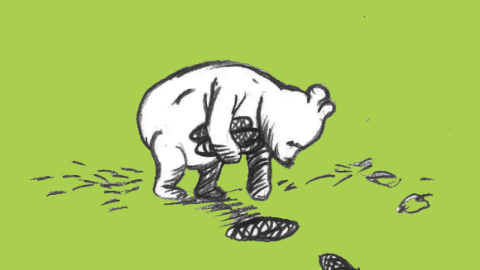
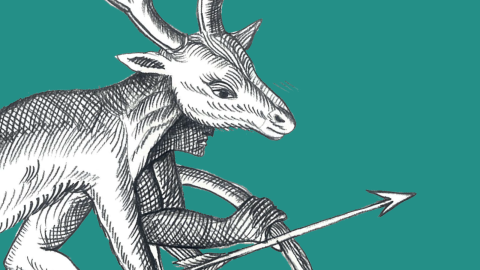



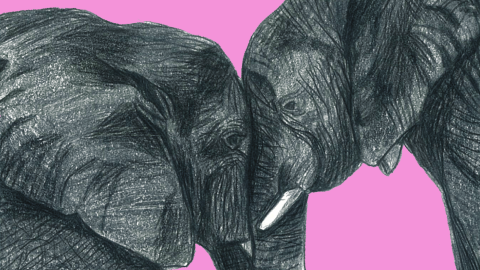





















Well done on this excellent article about money and economic opportunity. It had a motivational effect and will expedite my plans to work for myself and open a business. I particularly liked:
“You can always trust demand and supply. And the demand for the economic results of risky/hunter moves is high. And the supply is low. So this is where not only the experience is. But also literally the money.”
Thank you!